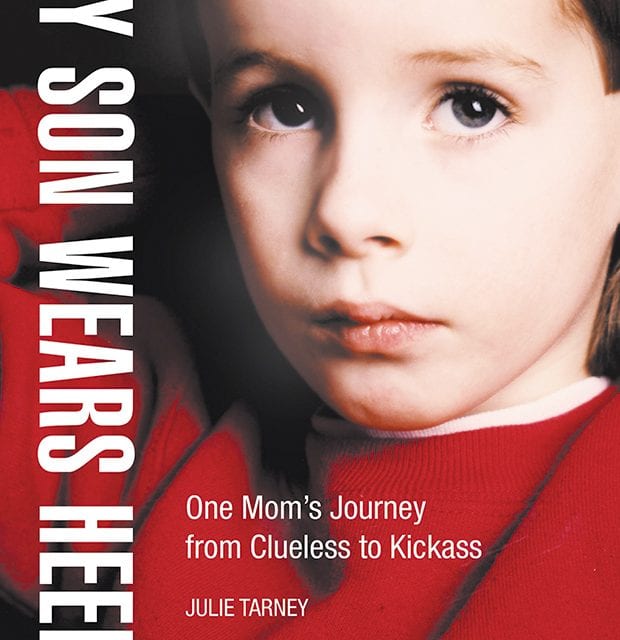Though Julie Tarney had known since he was born that her son Harry was a unique little guy, she was still taken aback when he asked how she knew that he was a boy.
Harry was just 2 then, and Tarney thought it was a normal question for a child that age. But his next comment — that he was a girl “inside my head” — sent her to her parenting books.
Tarney had no real frame of reference, other than a well-used copy of Dr. Spock. She was the eldest of two girls, born to a mother who was controlling and distant; even if she could have asked her late mother about parenting concerns, Tarney probably wouldn’t. Instinct told her that there was nothing to worry about, though she fretted that Harry was gay; she also worried that she’d somehow ruin him if she didn’t completely support his free-spiritedness.
As he grew up, Harry’s creativity grew, too; he loved to play dress-up and experiment through pretend. Wigs and shoes were his passion, but he also liked skirts … all of which Tarney successfully prevented him from wearing in public. Even so, by time he was 10, Harry had his own fashion sense and had gotten bullied for it. He knew he was different, but he was too young to articulate how. At 14, Harry came out as gay.
Through the years, while Harry worked to understand more about himself, his mother went through a period of personal acceptance, too. She discovered that she could survive as a single mom. She learned that loving herself wasn’t a bad thing, and that she could never “screw up” her son by loving him.
At its very basic, My Son Wears Heels is a good book. It showcases how one mother encouraged her son to openly explore who he was, and how his journey allowed understanding within hers. And if that was all there was in this book, you’d probably be very happy; instead, there’s a lot of plumping-up in this tale.
Tarney drops product names like she’s in a grocery store, sometimes right down to the ad tagline; that’s often followed by minute details that seem inconsequential, as though they’re merely filling conversational silence. Add recreated dialogue, quoted from more than 20 years ago and, well, continuity can be a challenge.
Again, great premise, good story, too much fluff, and if that bugs you, too, then take a pass. Unless you can overlook its padding, My Son Wears Heels is no shoo-in.
— Terri Schlichenmeyer
This article appeared in the Dallas Voice print edition January 27, 2017.


